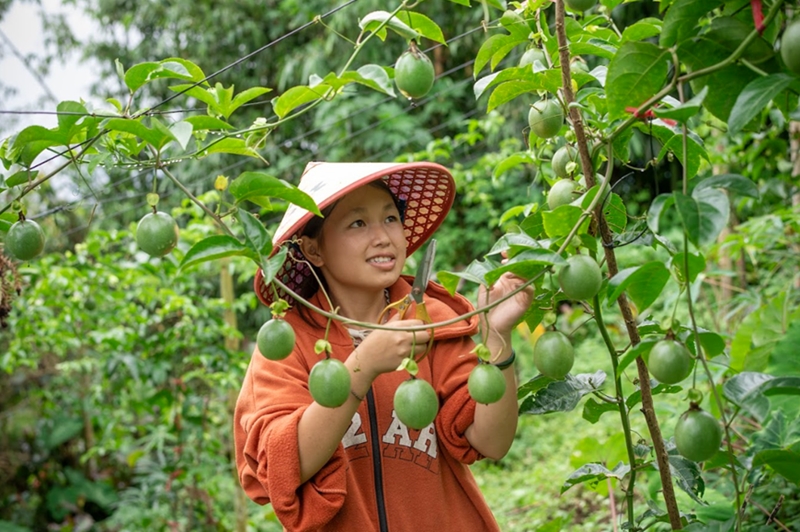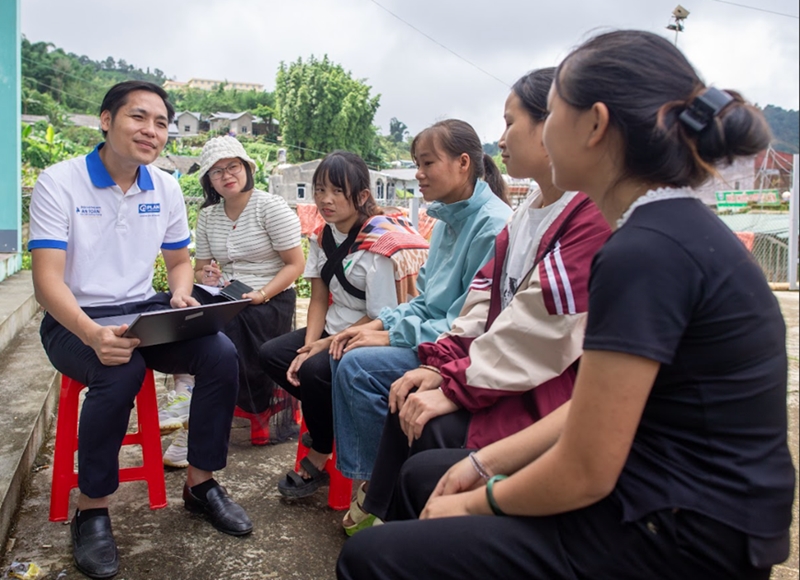Funded by the MetLife Foundation with a budget of USD 62,500 (about VND 1.6 billion), the project focuses on improving incomes for youths of ethnic minority groups through climate-resilient agriculture and strengthening entrepreneurship capacity.
    |
 |
|
Hoa, a participant of the MetLife project, at her family’s passion fruit garden (Photo: Plan International Vietnam) |
After nearly one year, the project has met and exceeded most of its targets. Specifically, 171 people joined the project’s activities (7% above target), 100 gained knowledge on climate-resilient farming, and 30 youth (15 male, 15 female) improved their entrepreneurial skills. Notably, 30 passion fruit livelihood models were established, doubling the original target.
Hoa, a H’mong girl from Dao San commune, shared that she was trained in passion fruit cultivation, microbial fermentation, and organic fertilizer production. She also received seeds, fertilizer, materials, and joined a Zalo group with other young participants to exchange experience and find markets.
“Through the project, we, youths of ethnic minority groups, have not only gained knowledge and skills in climate-smart agriculture, but also become more confident and pro-active in developing livelihoods and contributing to our community,” Hoa said.
According to Country Director of Plan International Vietnam Le Quynh Lan, climate-resilient passion fruit farming generates an average profit of VND 225 million per hectare, 14% higher than conventional methods using chemical fertilizers and pesticides. This economic efficiency motivates households to keep and expand the model while reducing chemical use and diversifying incomes. The project has also brought positive gender impacts with greater influence of women in family economic decisions. Nearly 79% of participating women were reported better access to training and support.
    |
 |
|
A Plan International Vietnam staff provides ethnic youth in Lai Chau province with ways to strengthen entrepreneurship skills. (Photo: Plan International Vietnam) |
The project has not only increased incomes and transformed livelihoods of participating households but also reshaped household labor structures. Its strong spillover effect has inspired other families in the community to adopt climate-resilient passion fruit models. At the same time, the project has indirectly but significantly contributed to environmental protection.
“Although not a direct conservation project, the economic impacts of the project have generated positive environmental externalities, aligning livelihood improvement with natural resource protection,” affirmed Dong Thi Hong, Vice Chairwoman of Dao San Commune People’s Committee.
Amid the mountains of Lai Chau, lush passion fruit trellises are sewing hope for a generation of ethnic youth daring to dream, to change, and to raise their voices, proving that when empowered, they can shape their own future.
Translated by Chung Anh